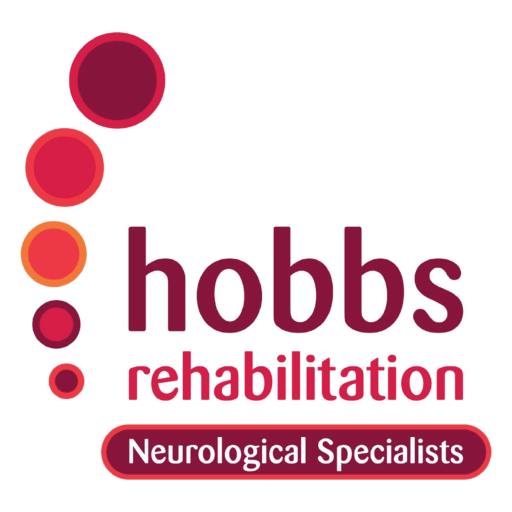Occupational Therapy (OT) plays a crucial role in helping individuals with neurological conditions regain independence and improve their quality of life. At Hobbs Rehabilitation, we are committed to delivering tailored, holistic neurological rehabilitation, and occupational therapy is at the heart of our approach. Whether it’s rehabilitating from a stroke, brain injury, or a progressive neurological condition, our highly skilled Occupational Therapists help patients build skills and confidence in their daily activities.
What is Occupational Therapy?
Occupational therapy focuses on enabling individuals to participate in everyday activities (or “occupations”) that are meaningful to them. For people with neurological conditions, these activities can range from basic self-care tasks, like dressing or eating, to more complex responsibilities such as returning to work, driving, or participating in hobbies. Activities such as these can be used as part of your treatment as being active and engaged in “doing” is the cornerstone of what we do as OT’s. We use activity to support you to get back to living as full a life as possible.
Our Occupational Therapists assess each patient’s physical, cognitive, and emotional challenges, designing personalised interventions that promote recovery and maximise function. This approach aligns perfectly with Hobbs Rehabilitation’s ethos of providing patient-centred care.
Why is Occupational Therapy Important in Neurological Rehabilitation?
- Regaining Independence
Neurological injuries and conditions often result in a loss of function that makes even simple tasks seem daunting. OT helps patients relearn the skills they need for daily living, fostering independence in activities such as bathing, dressing, cooking, and moving around the home. By using task-specific training and assistive technology, occupational therapists enable patients to regain autonomy and control over their lives. - Improving Physical and Cognitive Function
Occupational therapy doesn’t just focus on physical recovery, it also addresses cognitive and perceptual difficulties that are common after a neurological event. Whether it’s helping a patient improve their memory, attention, or problem-solving skills, our OTs at Hobbs Rehabilitation work alongside patients to enhance both mental and physical capabilities. This holistic approach ensures that therapy is comprehensive and addresses every aspect of rehabilitation. - Adapting to New Circumstances
Some neurological conditions result in permanent impairments. In these cases, occupational therapists play a vital role in helping patients adjust to their new circumstances. This might involve training in the use of adaptive equipment, modifying the home environment to make it more accessible, or finding alternative ways to perform tasks. - Return to Work and Community Life
For many, returning to work or resuming social activities is a major goal of neurological rehabilitation. Our Occupational Therapists help patients develop the skills needed for a successful return to their community roles. Whether it is assessing your readiness to work, finding adjustments in your role, or building confidence in social interaction. OT ensures that individuals feel supported as they re-enter the workforce or their community. - Holistic, Person-Cantered Care
At Hobbs Rehabilitation, we believe in treating the whole person, not just the condition. Occupational therapy is uniquely positioned to contribute to this approach because it focuses on the meaningful roles and activities that make life fulfilling. Our OTs work closely with other specialists—physiotherapists, speech and language therapists, neuropsychologists—to ensure a coordinated, multi-disciplinary approach.
Occupational Therapy in Action at Hobbs Rehabilitation
At Hobbs Rehabilitation, our Occupational Therapists are skilled in working with a wide range of neurological conditions, including but not limited to:
- Stroke: Rebuilding motor skills, enhancing cognitive function, and regaining independence in self-care, domestic tasks, access to the community, return to hobbies and leisure tasks and vocational roles.
- Brain injury: (including Persistent Concussion Symptoms) Cognitive rehabilitation, return-to-work programs, and re-learning everyday activities.
- Spinal cord injury: Maximising function and adapting to new methods of completing tasks with assistive devices and treatment of upper limbs, posture, changes to function and return to sport, leisure and work settings.
- Progressive neurological conditions: Managing symptoms and adapting activities to maintain independence as conditions evolve.
Our patients receive individualised treatment plans based on their specific needs and goals. Whether through the use of neuro-technology, finding equipment appropriate for your needs, hands-on therapy, or creative problem-solving strategies, our OTs are constantly adapting and refining their approaches to ensure the best possible outcomes for each patient.
The Role of Technology in OT at Hobbs Rehabilitation
At Hobbs, we can incorporate innovative technology into our occupational therapy interventions. From robotic devices that assist with motor recovery to software that supports cognitive rehabilitation, technology can play an integral role in helping our patients achieve their goals. These tools not only enhance the effectiveness of therapy but also empower patients to take an active role in their recovery.
Conclusion
Occupational therapy is an essential component of neurological rehabilitation, helping patients regain independence, improve function, and live meaningful lives. At Hobbs Rehabilitation, our Occupational Therapists are dedicated to providing personalised, evidence-based assessments and treatment programmes that support each patient’s journey toward recovery. By focusing on the activities that matter most to our patients, we ensure that rehabilitation is not only effective but also deeply meaningful.
If you or a loved one are seeking neurological rehabilitation, we invite you to explore how our Occupational Therapy services at Hobbs Rehabilitation can help.
For more information or to schedule a consultation, please visit our website or contact our team directly.

